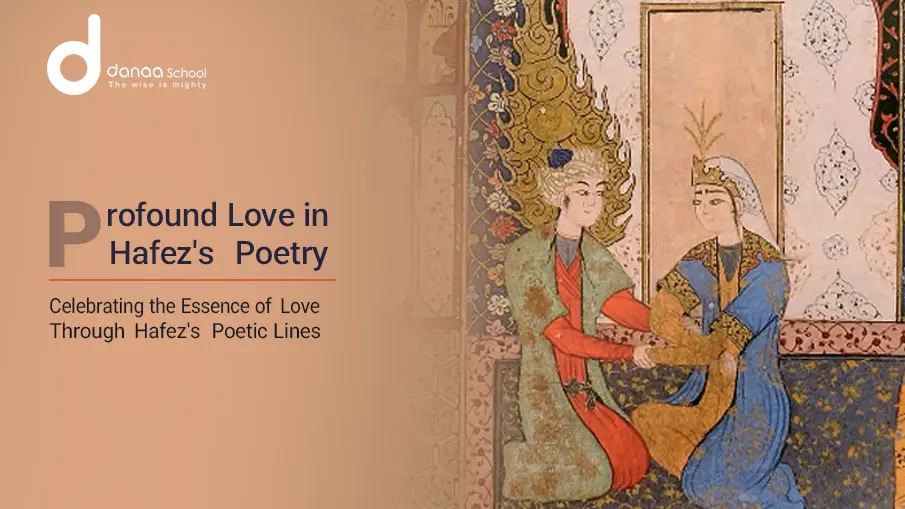Hafiz or Hafez? What Is the Correct Spelling?
If you’ve ever wondered “Is it Hafiz or Hafez?”, you’re not alone. Both spellings are correct — but they are used in different contexts. Understanding the difference helps you read, write, and search Persian literature more accurately.
Short answer: “Hafez” is closer to the Persian pronunciation, while “Hafiz” follows Arabic-based transliteration.
The Origin of the Name “Hafiz”
The word Hafiz (حافظ) originally comes from Arabic and means “guardian” or “one who memorizes,” often referring to someone who has memorized the Quran.
In Persian culture, the name became most famous through Hafez of Shiraz, the legendary 14th-century Persian poet.
Hafiz vs. Hafez: Why Are There Two Spellings?
The difference between Hafiz and Hafez comes from transliteration — converting Persian script into Latin letters.
| Spelling | Used In | Why |
|---|---|---|
| Hafiz | English & Arabic contexts | Follows Arabic phonetics and older Western usage |
| Hafez | Persian & academic contexts | Closer to Persian pronunciation (Hāfez) |
Both spellings are acceptable, but consistency matters — especially in academic writing or publishing.
Who Was Hafez of Shiraz?
Hafez (also spelled Hafiz) was born in Shiraz, Persia (modern-day Iran) in the 14th century. He is considered one of the greatest poets in Persian literature.
His poetry explores love, spirituality, fate, and the human connection with the divine. Today, his Divan is still read, quoted, and used for reflection across Persian-speaking cultures.
Learn more here: Who is Hafez?
Why the Correct Spelling Matters
Choosing between Hafiz and Hafez depends on your audience.
- Academic & Persian studies: Hafez
- General English usage: Hafiz
- SEO & consistency: Pick one and stay consistent
Using the appropriate spelling shows cultural awareness and improves clarity for readers and researchers.
Learning Persian Literature with Danaa School
At Danaa School, we explore Persian literature with cultural accuracy and linguistic depth. From Hafez to Ferdowsi, students learn not only the texts, but the historical and linguistic context behind them.
Understanding details like Hafiz vs. Hafez is part of learning Persian the right way.
FAQs
Is Hafiz and Hafez the same person?
Yes. Hafiz and Hafez refer to the same Persian poet from Shiraz.
Which spelling is more correct?
Both are correct. “Hafez” reflects Persian pronunciation more closely.
Why do books use different spellings?
Because transliteration systems vary between languages and regions.
Why Are There Two Spellings: "Hafiz" and "Hafez"?
The two spellings reflect different transliterations of the Persian poet’s name. “Hafiz” follows a more phonetic approach, while “Hafez” is closer to the Persian pronunciation. Both are correct.
What Does "Hafiz" or "Hafez" Mean?
“Hafiz” (حافظ) means “guardian” or “memorizer” in Arabic, traditionally referring to someone who has memorized the Quran. It’s also a title for the poet, known for his mystical and lyrical poetry.
Which Spelling Is More Common in Western Contexts?
“Hafiz” is more commonly used in Western contexts, reflecting the phonetic pronunciation of Arabic. “Hafez” is often preferred in Persian-speaking contexts.
How Should I Choose Which Spelling to Use?
Choosing “Hafiz” or “Hafez” depends on your audience and context. “Hafiz” is typical in English-speaking and academic settings, while “Hafez” may be preferred in Persian cultural discussions.
Why Is It Important to Understand These Spelling Variations?
Understanding the spelling variations shows cultural sensitivity and respect for linguistic differences. It helps in accurately representing the poet and enhances appreciation of his work in diverse contexts.
Conclusion
Whether you prefer “Hafiz” or “Hafez,” what matters most is the poet’s timeless contribution to literature and culture. Both spellings reflect the poet’s rich legacy and his ability to transcend linguistic and cultural boundaries.
At Danaa School, we strive to cultivate a deep appreciation for such cultural nuances, empowering our students to become well-rounded, culturally aware individuals. Join us in our journey of discovery and learning!
Interested in learning more about our unique approach to education? Enroll today! Let’s explore the world of literature and culture together.










